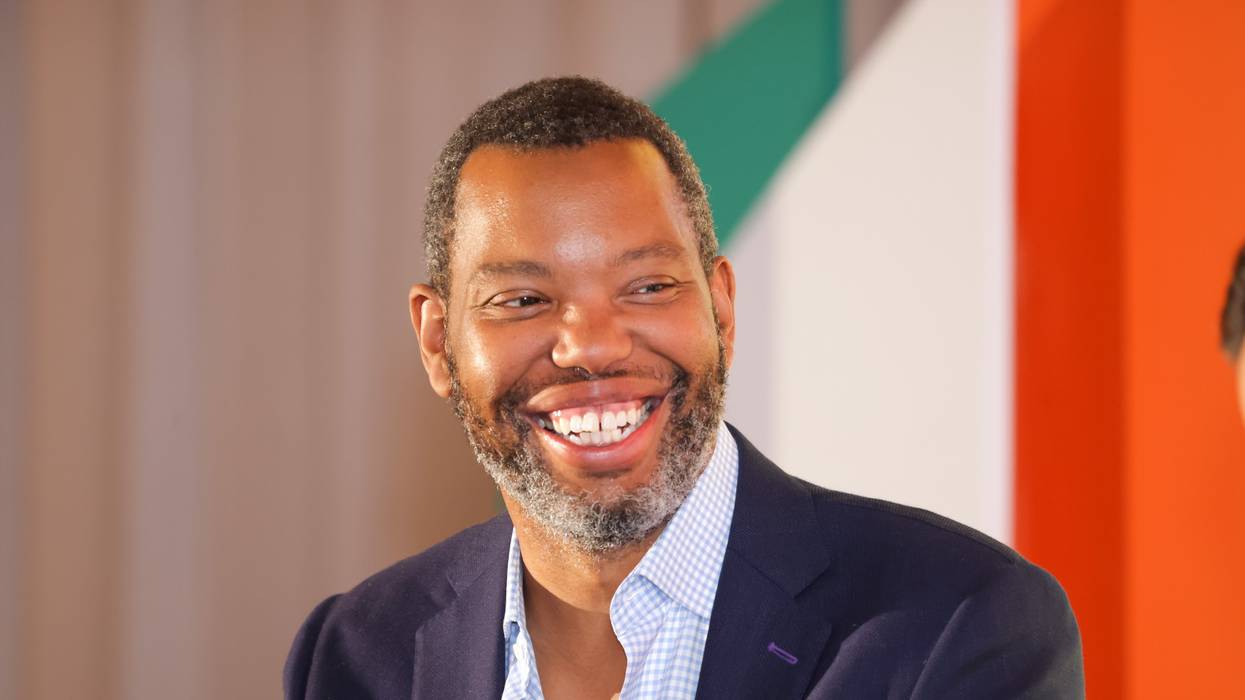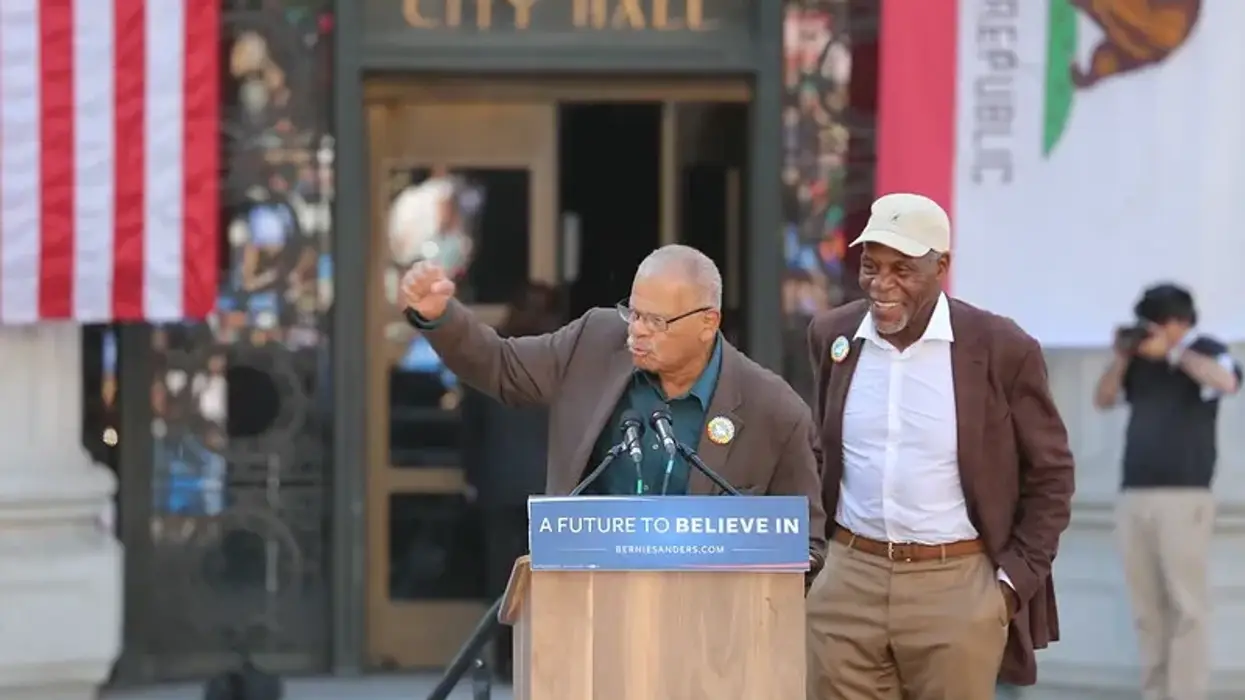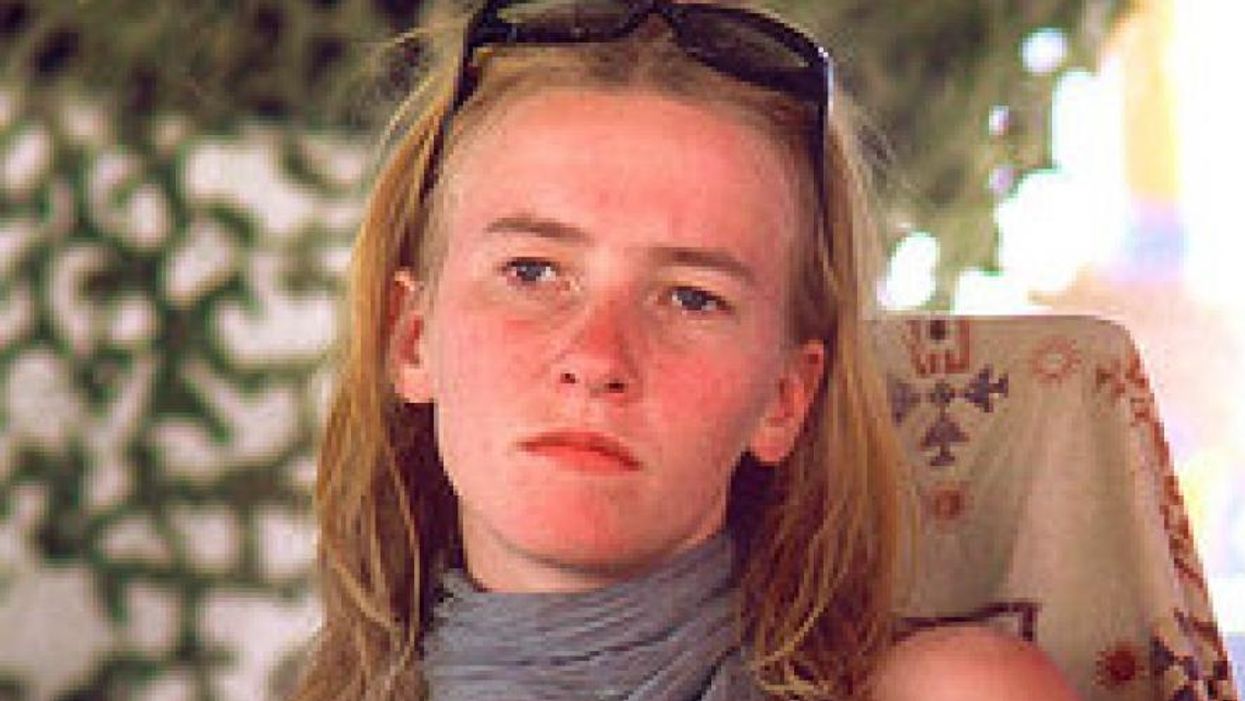Ta-Nehisi Coates Freed Himself From Zionist Propaganda—Will the Country Follow?
Given his influence on the white liberal establishment, can Coates be marginalized like any other American who dares speak the truth about Israel, let alone at this particular moment in history?
The United States is the single most powerful supporter of the Israeli settler colony.
The U.S. government heavily arms and gives political cover to Israel, and considers the people at the mercy of its aggression as America's enemies. And president after president, Republican and Democrat, has enabled Israel to commit war crimes, crimes against humanity, and even genocide with total impunity.
The current genocide Israel is committing in Palestine is legally and morally placed at the doorstep of the U.S.
Therefore, what happens in the U.S.—especially when the political mainstream begins to wake up and see Zionism for the apocalyptic genocidal fanaticism that it is—matters for world peace.
For generations, liberal Zionists have infiltrated the ranks of American liberal imperialists with terror visited upon the world. West and Mishra saw through Coates clearly; now, so has he.
Zionists—whether Israeli or American, Christian or Jewish—do not like the prospects of that awakening.
As the racist and colonial nature of Israel's regime became more widely recognized, the experiences between Palestinians and the African American community also became more prominently linked, especially in the wake of the Black Lives Matter movement.
Over the last year, several outlets—from The New York Times to Politico, Vox, and others—published articles examining the history of Black and Palestinian solidarity.
Indeed, these discussions emerged in full force after 7 October 2023 as several leading African American public figures and intellectuals made clear their stance on Israel—even making headlines on "how Gaza has shaken Black politics."
When U.S. Ambassador to the United NationsLinda Thomas-Greenfield raises her hand and vetoes one Security Council resolution after another to stop the Israeli murderous machinery; when we see U.S. Secretary of Defence Lloyd J Austin III in the news pledging his mighty military will protect Israel against attempts to stop its rampage; when the irredeemably corrupt New York City Mayor Eric Adams delivers nauseating "stand with Israel" speeches, something deep in the history of African American experience cries foul.
And when Congresswoman Cori Bush of Missouri avows: "Aipac [American Israel Public Affairs Committee], I'm coming to tear your kingdom down!" she invokes an entirely different legacy of solidarity with Palestinians in African American history, as Israel systematically unleashes its savageries against Palestinians and other Arab nations like Lebanon.
Towering figures like Malcolm X, James Baldwin, Angela Davis, Alice Walker, and Cornel West have been bold, precise, and hard-hitting when it comes to condemning the criminal atrocities of the U.S. and Israel in cahoots together.
Reenter Ta-Nehisi Coates
It was not too long ago when the heat on Ta-Nehisi Coates, a prominent African-American literary and critical voice, got so bad he ran out of the kitchen.
Back in 2017, he deleted his Twitter account with millions of followers and went into occultation following a scathing critique levelled against him by the unflinching moral conscience of Cornel West, a distinguished scholar and activist who called him "the neoliberal face of the Black freedom struggle."
Coates soon left his main outlet, The Atlantic, a major Zionist operation run by former Israeli prison guard Jeffrey Goldberg, that was grooming him as a feather in their Israeli hat. For years, he would oblige.
Coates published his 2008 hymn for Israel, " The Negro Sings of Zionism," which he followed with "The Case for Reparations" in 2014. The essay, which sparked criticism among Palestine advocates, made him a darling of American Zionists.
Coates presented Israel as the model for reparations and thought African Americans ought to do the same as the Israeli state did with Germans.
For a decade now, that bit of Zionist newspeak he embraced under the condition he now calls " default Zionism" has haunted his conscience. Rightly so: Today, when he appears for public interviews, he repeatedly says: "I am ashamed!"
He should be.
Had he not heard of Edward Said when he was entrapped in that "default Zionism"? Any answer he might give to that simple question would be even more incriminating.
The most damning assessment of Coates, however, was not by West, who said in 2017 that Coates "reaps the benefits of the neoliberal establishment that rewards silences on issues such as Wall Street greed or Israeli occupation of Palestinian lands and people."
In his characteristically patient and precise prose, the eminent Indian public intellectual Pankaj Mishra published a major review of Coates' 2017 book on the Obama era, We Were Eight Years in Power, in the London Review of Books.
Mishra detailed and dissected Coates' deeply white-identified career, which banked on his Black identity to drive guilt-ridden white America to celebrate him—just as Barack and Michelle Obama had done. This was a fact that West had also intuited and laid bare to him.
Mishra picked up on Coates' own sense of wonder in himself, "Why do white people like what I write?" and analysed with surgical precision:
[Coates] also visibly struggles with the question, "Why do white people like what I write?'' This is a fraught issue for the very few writers from formerly colonized countries or historically disadvantaged minorities in the West who are embraced by "legacy" periodicals, and then tasked with representing their people—or country, religion, race, and even continent (as in The New York Times's praise for Salman Rushdie: "A continent finding its voice"). Relations between the anointed "representative" writer and those who are denied this privilege by white gatekeepers are notoriously prickly. Coates, a self-made writer, is particularly vulnerable to the charge that he is popular among white liberals since he assuages their guilt about racism.
This was published in February 2018, just a few months after West had, with the stroke of a few bold and brilliant paragraphs, forced Coates into early withdrawal from the public to lick his wounds.
It did him good and well.
His new book, The Message, is his deliverance from error, as it were, his version of al-Ghazali's classic al-Munkidh min al-Dalal/Deliverance from Darkness, published nearly 1,000 years ago.
Imagine that! A young African American writer publishes a book that reminds me, a Muslim, of the autobiographical masterpiece of a towering Muslim philosopher mystic. This should mean more to him than any Pulitzer or Booker.
But Coates' visit to Palestine for just 10 days is reminiscent of another even closer Muslim to his home and habitat when Malcolm X visited Gaza in September 1964.
On this occasion, he wrote: "The ever-scheming European imperialists wisely placed Israel where she could geographically divide the Arab world, infiltrate and sow the seed of dissension among African leaders, and also divide the Africans against the Asians."
Bearing witness to Palestinian suffering and Zionist thuggeries, Coates has a giant pair of shoes to fill if he continues on this path.
The long essay Coates wrote on his visit to Palestine, which is included in his book, marks his deliverance from Zionist prose.
For generations, liberal Zionists have infiltrated the ranks of American liberal imperialists with terror visited upon the world. West and Mishra saw through Coates clearly; now, so has he.
Deliverance from Zionism
Immediately after the publication of Coates' latest book, the pro-Israel hasbara machinery, of course, went berserk and unleashed its furies, the racist nature of which managed to surprise even Coates himself.
Other liberal Zionists like Ezra Klein of The New York Times tried to undermine his arguments by asking him why he did not consult with rabid Zionists in Israel when he was there, and of course, setting the usual propaganda trap, "What about Hamas?"
As defined and determined by well-endowed and ideologically committed outlets like the Times, The Wall Street Journal, and The Atlantic, the U.S. media is a well-oiled propaganda machinery of hasbara-informed pro-Israel newspeak.
The gap between the liberating truth Coates now sees and speaks and the ugly propaganda Zionists continue to keep dominant in American political culture is now widening apace.
Previously, when others like Coates suddenly found a conscience, the mainstream press just turned a deaf ear and pretended it did not happen. Perhaps one recent example is New York Congressman
Jamaal Bowman, whose changed position on Israel not only cost him his reelection campaign but has largely relegated him to obscurity.
Given his influence on the white liberal establishment and their understanding of race and diversity in this country, can Coates be marginalized like any other American who dares speak the truth about Israel, let alone at this particular moment in history?
The gap between the liberating truth Coates now sees and speaks and the ugly propaganda Zionists continue to keep dominant in American political culture is now widening apace.
More than half a century after the Civil Rights movement—when the world thought racism had been dealt with—Americans gave Donald Trump to the world right after Obama lent his Black identity to career opportunist liberal imperialism of the worst kind.
The stockpile of bombs the Israelis are dropping on Palestinians, Lebanese, Syrians, Yemenis, and others remains Obama's legacy in the Middle East.
As I write, Americans are almost evenly split on the upcoming presidential election, poised to vote for either a Mussolini wannabe rank charlatan fascist or a Genocide Joe replacement who, like a parrot or a broken record, can only repeat AIPAC talking points.
Between a genocidal administration with the blood of tens of thousands of Palestinians and Lebanese on its hands and a fascist wannabe, the future of the U.S. and all its global warmongering, particularly its Israeli garrison state, is now being determined.
The significance of what Coates has written weighs far less for Palestinians who have equally if not more eloquent voices to speak on their behalf.
But for Americans, Coates' corrective message may both inspire and signal a broader cultural shift in which this country may be liberated from the curse of Zionism.


